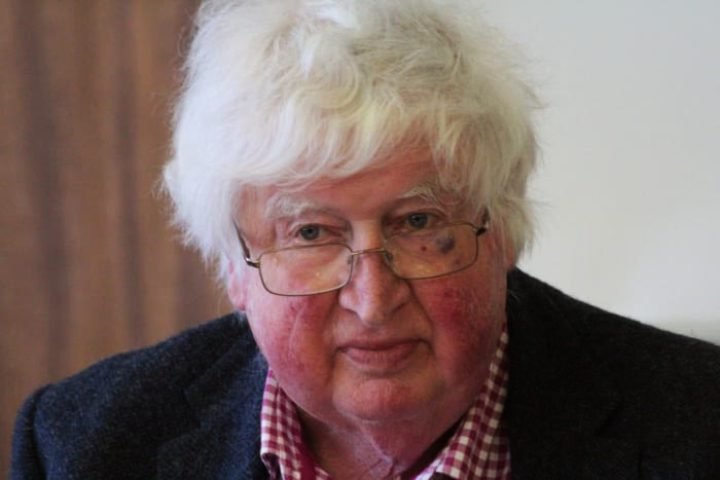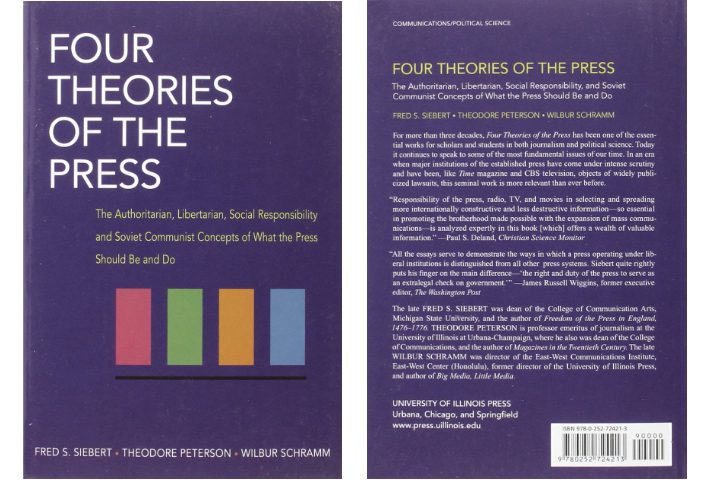- Normative Theory – 6 Theories of the Press
- 5 Key Criticism of Normative Theory of Press
- 3 Key Normative Theories: Agenda-Setting, Priming, and Framing
Normative Theory of Press Critiques
While normative theories of mass communication have been influential in understanding media systems, they have also faced significant criticism.
In This Article
Key Critiques of Normative Theories:
- Western-Centric Bias
- Oversimplification
- Lack of Empirical Grounding
- Static Nature
- Limited Scope
Let’s examine each of these critiques in detail:
Western-Centric Bias
Critics argue that the original normative theories were developed primarily based on Western, particularly American, media systems and may not adequately reflect the realities of media in other cultural contexts.
Oversimplification
The theories are criticized for presenting idealized types that may not accurately represent the complexities of real-world media systems.
Lack of Empirical Grounding
Critics point out that the theories are more prescriptive than descriptive and lack substantial empirical evidence to support their claims.
Static Nature
The theories are criticized for not adequately accounting for the dynamic nature of media systems and their evolution over time.
Limited Scope
Critics argue that the theories focus primarily on traditional news media and don’t adequately address other forms of media and communication.
Criticism of normative mass communication theories has evolved over time, offering valuable insights that have contributed to their refinement and expansion. Initially proposed by Siebert, Peterson, and Schramm in 1956, the original four theories (Authoritarian, Libertarian, Social Responsibility, and Soviet Communist) faced increasing scrutiny as media landscapes evolved and scholars recognized the limitations of these Western-centric models.
In the 1970s, scholars began to question the applicability of these theories to non-Western contexts. One of the earliest and most significant critiques came from Herbert Altschull in 1984, who argued that the theories were too simplistic and failed to account for the complexities of real-world media systems.
Altschull proposed that media systems were better understood in terms of their relationship to political and economic power structures rather than through idealized normative models.
Around the same time, William Hachten expanded on the original theories, adding two more: Revolutionary Theory and Developmental Theory. This expansion attempted to address some of the gaps in the original framework, particularly in relation to media systems in developing countries and those undergoing political upheaval.
Hachten’s additions highlighted the need for more nuanced approaches that could account for diverse cultural and political contexts.
In the late 1980s and early 1990s, scholars like John Merrill and Ralph Lowenstein critiqued normative theories for their lack of empirical grounding and tendency to oversimplify complex media ecosystems.
They argued for a more flexible approach that could account for the hybrid nature of many real-world media systems, which often combine elements from multiple normative models.
Denis McQuail’s Contributions and Perspectives

Denis McQuail, in his book “McQuail’s Media and Mass Communication Theory,” has addressed many of these critiques and expanded the normative framework. Key aspects of McQuail’s work include:
Expanded Normative Theories
McQuail proposed additional models to the original four, including:
- Development Media Theory: Emphasizes media’s role in national development
- Democratic Participant Theory: Focuses on grassroots, participatory media
These additional theories are particularly relevant for understanding community radio initiatives and developmental journalism in developing nations like India.
Recognition of Hybrid Systems
McQuail acknowledges that real-world media systems often combine elements from different normative models. This perspective helps explain the coexistence of state-controlled, market-driven, and public service media in different parts of the developing world. In the Indian context, Doordarshan is an example.
Emphasis on Media Accountability
McQuail stresses the importance of media accountability to various stakeholders, including the public, clients, and the profession itself. This concept is relevant to debates about media ethics and self-regulation in the developing world, such as the role of the Press Council of India in India.
Public Interest in Media Policy
McQuail emphasizes the need to consider public interest in media policy formulation. This perspective is crucial for analyzing media ownership concentration or content regulation policy debates.
Cultural and Social Context
McQuail emphasizes the importance of considering cultural and social contexts in understanding media systems. This approach allows for a more nuanced analysis of how India’s diverse cultural landscape shapes its media environment.

Denis McQuail’s work in the 1980s and 1990s marked a significant shift in the critique of normative theories. McQuail’s critiques were particularly influential, as he not only pointed out the limitations of the original theories but also proposed expansions and refinements.
He introduced additional models, including the Democratic-Participant and Development Media theories, that were more applicable to diverse global contexts. McQuail’s work emphasized the importance of considering cultural context, public interest, and media accountability in normative frameworks.
Denis McQuail’s expanded perspectives offer a more nuanced and flexible framework for understanding media systems. As we saw in the previous article of this series, Normative Theory—6 Theories of the Press, McQuail’s expanded framework allows for a more culturally sensitive and empirically grounded analysis of media systems.
It provides tools for examining the hybrid nature of many media systems, the importance of public interest and accountability, and the role of media in development and democracy.
Other Important Critiques
In the 2000s, scholars like Clifford Christians, Theodore Glasser, Denis McQuail, Kaarle Nordenstreng, and Robert White collaborated on further critiques and expansions of normative theories.

Their work, culminating in the book Normative Theories of the Media (2009), proposed a more nuanced framework that considered the roles of the press in a democracy, including monitoring, facilitation, radical, and collaborative roles.
This approach aimed to provide a more flexible and culturally sensitive framework for understanding media systems.
More recent critiques have focused on the challenges posed by digital media and globalization. Scholars like Manuel Castells and Yochai Benkler have argued that traditional normative theories fail to adequately address the networked nature of modern communication systems and the blurring of boundaries between producers and consumers of media content.
These various critiques have significantly contributed to the development of normative theories by:
1. Expanding the scope of the theories to include non-Western contexts and developing nations.
2. Encouraging a more nuanced and flexible approach to understanding media systems.
3. Highlighting the importance of considering cultural, political, and economic contexts in media analysis.
4. Promoting the development of more empirically grounded approaches to normative media theory.
5. Addressing the challenges posed by new media technologies and globalization.
As a result of these critiques, contemporary approaches to normative media theory are more likely to recognize the hybrid nature of media systems, the importance of cultural context, and the need for flexibility in applying theoretical frameworks. This evolution has made normative theories more relevant and applicable to diverse global contexts, including complex media landscapes like India’s.
Conclusion
These evolutions have made normative theories more relevant and applicable to diverse global contexts, including complex media landscapes like India’s.
In an era of rapid technological change and global information flows, these perspectives remind us of the need for flexible, context-sensitive approaches to media analysis. They encourage ongoing reflection on how media should function in diverse societies, balancing various normative ideals with empirical realities.
Internalizing these critical perspectives will allow media scholars in India to analyze media phenomena, inform ethical media practices, and contribute to discussions about media policy and regulation in India.
By combining these theoretical insights with an understanding of India’s unique cultural, social, and political contexts, aspiring media scholars can contribute to a more nuanced and socially responsible approach to media studies and practice in the Indian context.





